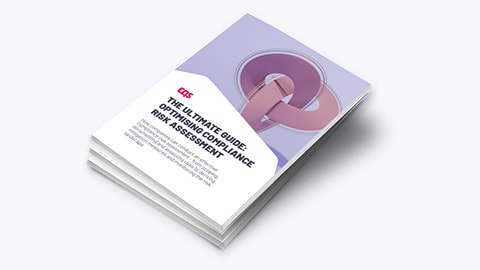The role of Compliance Managers in driving innovative compliance management
Compliance Officers are primarily responsible for ensuring that companies adheres to regulations.

Compliance Officers are responsible for ensuring that the company processes strictly adhere to the rules and regulations and that they comply with the law. The role of a Compliance Officer no doubt carries extreme importance, but every so often, they are seen as officers who always are neck-deep in paperwork.
Compliance Officers are even seen as people who pull the brakes on new ideas and projects, quoting laws and regulations to state why the company cannot go ahead with a proposed plan. However, it is essential to understand that one of the main responsibilities of Compliance Officers is not only to manage risks, but also to take preemptive steps to foresee risks and act accordingly. This makes the job of a Compliance Officer extremely challenging and is often what misleadingly invites the wrath of other employees and in some cases, even the top-level management.
Risk management will continue to be an integral part of a Compliance Officer’s role. It will always be about fending off risks but at the same time, embracing some calculated risks. The willingness to take risks is fundamental to innovation and essential for shaping the future of a company and innovations can ensure their long-term survival in a highly competitive market.
Innovation in compliance
Compliance is seldom seen as driving innovation in companies, to the extent that it is viewed as a blocker of bold ideas. This outlook also stems from the fact that compliance deals with topics such as regulation and enforcement and thus prevents it from being seen as an enabler.
The role of a Compliance Officer was never easy and is only getting more challenging. Meeting regulatory challenges and ensuring that the company abides by both internal and external regulations can sometimes force innovation to take a back seat. This is bound to introduce a certain kind of tension within the organization, especially when compliance issues end up preventing innovative ideas from taking shape. Compliance is, therefore, not something that companies should resist, but instead embrace so that other aspects of the company can greatly benefit from it.
But does having to adhere to regulations mean that there is no longer room for innovation in the company? Because compliance stands at an intersection of risk management and the overall digital transformation of a company, this carves out enough space for making compliance management even more effective.
Embracing a Compliance first attitude
One of the factors that gives compliance the reputation of being the blocker of innovation is in cases where compliance is not inherently part of the organization. This is to say that such companies lack a compliance first approach and often fail to make it part of the company culture. In most cases, compliance is seen as a checkbox that need to be fulfilled. The understanding that compliance is not something that comes at later stages or considered retrospectively, but that should be part of the processes by default goes a long way in shifting the perception of compliance. The key to solving the dilemma possibly lies in empowering Compliance Officers as active participants even at the design phase of a project and not introduce them later on in the process to then evaluate a finalized plan of action.
Compliance should, therefore, be proactively integrated into all the activities of the company. A company that has integrated compliance management into its processes can respond quickly to changes in technology, legislation, or customer expectations. Digital process platforms make it possible to map regulatory requirements and to a large extend, simplifies the process of verifying whether the company is following regulations.
Digitizing compliance and focus on compliance communication
Different companies have different approaches to seamlessly integrate compliance into the overall culture of the organization. From annual trainings to interactive workshops and more, there are several ways in which compliance teams attempt to get the idea of compliance to every employee.
Effective compliance communication, integration and harmonization with existing organizational structures, and promotion of a compliance culture in the company are seen by Compliance Officers themselves as challenges. Digital ethics is one of their new tasks and today, this is possible using tools such as a Compliance App.
Rulebook provides the right answer to every question. Always and everywhere knowing what is and is not feasible, the platform provides employees with a tool that generates competence to act in all situations. This creates motivation and trust, while at the same time avoiding breaches of rules and defensive attitudes from employees.
The key to integrate compliance into the everyday, operational process of companies also means that all its employees are made aware of the corporate values that guide the company as well as have a platform for employee engagement. By digitalizing the compliance function, companies are able to empower all employees to clearly identify issues independently and if needed, with the assistance of the compliance officer or team. This way, compliance knowledge is made available and more importantly, easily accessible to employees, who can then take calculated risks based on the information they have at hand. What such a process also ensures is that it makes compliance the responsibly of each and every employee and not just confine it to the compliance officer.
Employees need to be empowered with the necessary tools with which they can assess own risks and take informed, intelligent risks. A strong company culture drives compliance.

Dieser Leitfaden erklärt übersichtlich, wie Sie erfolgreich eine Analyse der Compliance-Risiken in Ihrem Unternehmen durchführen





